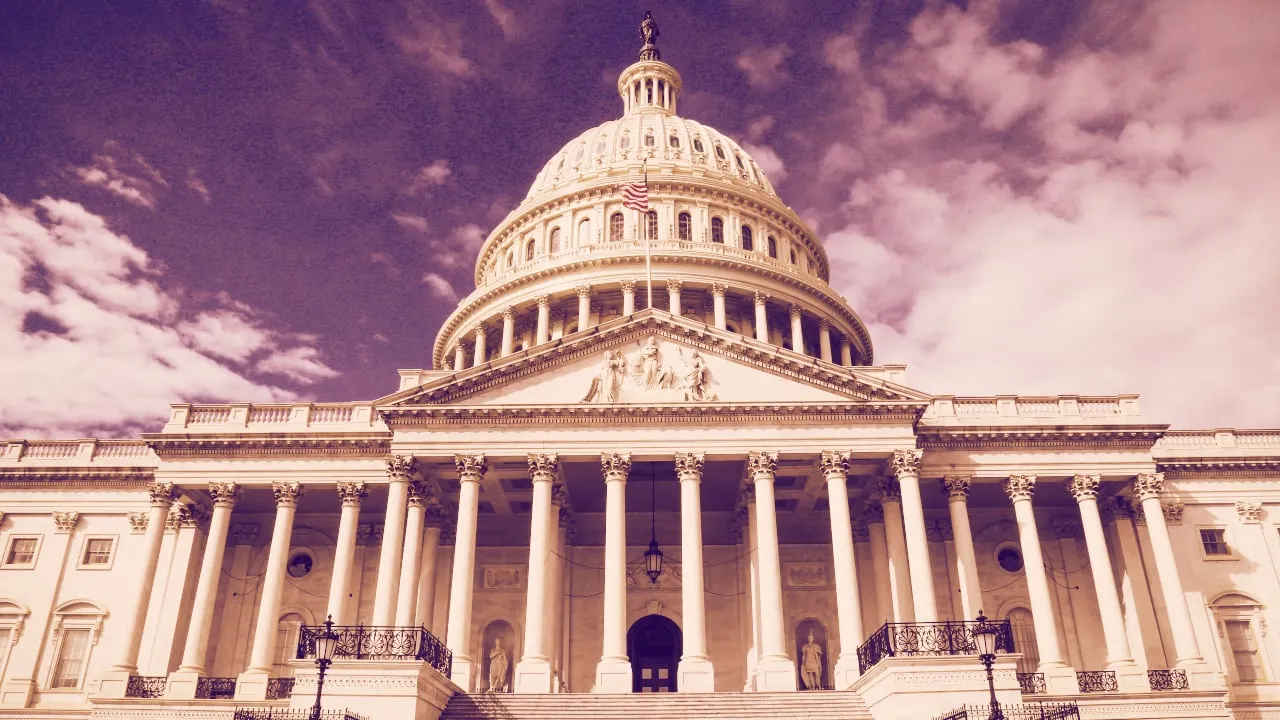A bipartisan group of lawmakers—including the leading Republican on the House Agriculture Committee—has introduced a new bill to regulate developers, dealers, and exchanges working with digital commodities, including stablecoins and, ostensibly, Bitcoin.
The Digital Commodity Exchange Act of 2022—which would expand the U.S. Commodity Futures Trading Commission's regulatory power—is sponsored by Rep. Glenn Thompson (R-PA), the ranking Republican member of the House Agriculture Committee, as well as Rep. Tom Emmer (R-MN). The bill has also pulled support from across the aisle, with Rep. Ro Khanna (D-CA) and Rep. Darren Soto (D-FL) signing on as co-sponsors.
The bill would do several things.
First, according to documents shared with Decrypt, it would allow the U.S. CFTC—which is overseen by the Agriculture Committee due to the agency's historic role regulating derivatives markets for grains and other agricultural staples—to "register and regulate trading venues offering spot or cash digital commodity markets as digital commodity exchanges." That is, the CFTC would regulate cryptocurrency exchanges, such as Coinbase and FTX US.
CFTC Chair Rostin Behnam, during his confirmation hearing, had asked the committee to "consider expanding authority for the CFTC" beyond its "historical role as a derivatives regulator." The bill as written would allow for that by letting the agency regulate spot trading of crypto commodities. Whereas derivatives and futures markets let traders speculate on which direction the price of an asset is headed, spot markets allow traders to buy or sell at the current price.
Moreover, the bill would give the CFTC jurisdiction over digital assets that do "not convey rights and obligations typically associated with a security." While crypto-based securities would still be handled by the SEC, everything else would essentially be regulated by the CFTC.
This has been a sticking point for the industry because some projects aren't certain whether regulators view their coins or tokens as a security—and only find out after an enforcement action. However, per the bill, digital currency exchanges would be required to seek CFTC approval before they begin trading new digital commodities.
While this would provide some clarity about the underlying nature of the assets, it could also slow the pace at which exchanges such as Coinbase can list new tokens. Coinbase CEO Brian Armstrong has publicly stated that the exchange wants to allow trading for every asset that it legally can.
The bill also outlines rules for pre-sales of digital commodities, ostensibly so that they aren't dumped on the open market, harming consumers. And as part of the listing process, exchanges must show that the price of the cryptocurrency can't easily be manipulated.
Finally, the bill carves out a space for stablecoin issuers such as Circle, who can "register with the CFTC as fixed-value digital commodity operators (FVDCO)." They would be required to submit to regular audits and ensure they have enough assets on hand to redeem the stablecoin for dollars.
Crypto companies have, for years, been calling on Washington, D.C. policymakers to provide a regulatory framework for digital assets so that the industry can move forward with a clear understanding of how to legally operate.
Rep. Thompson addressed that issue in a press conference, stating, "This rapidly evolving marketplace is currently subject to an inefficient and inconsistent patchwork of regulatory regimes at both the state and the federal levels."
Added Rep. Khanna: "No one is asking for different rules. They're just asking to understand what the rules are."
Rep. Thompson said conversations are underway with Agriculture Committee Chairman David Scott (D-GA) and CFTC Chair Behnam, and both he and Rep. Khanna expressed optimism that the bill could move forward to a hearing.
Assuming the bill can make it out of committee and get passed by the full House, it would need to be taken up in the Senate Agriculture Committee, which is also working on a bill that would cover a cryptocurrency regulatory framework.

